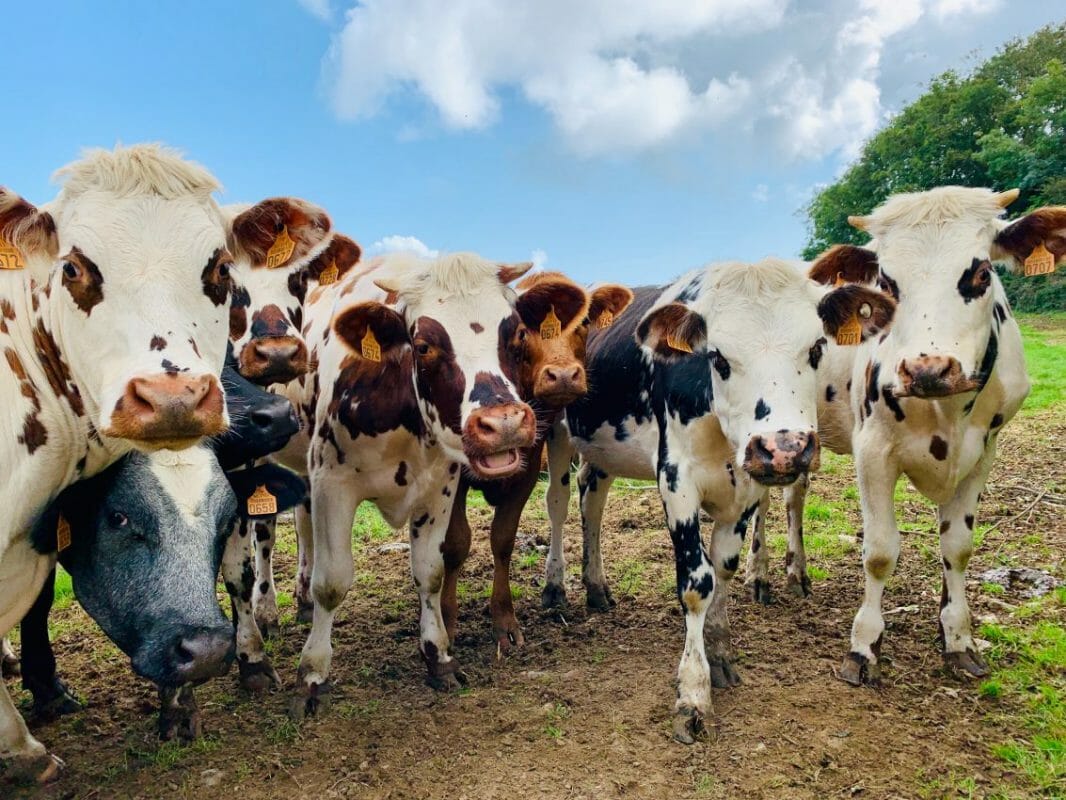Keeping farm animals healthy is a top priority for any farmer. Animals that are unhealthy will not produce as much milk, meat, or eggs as they would if they were healthy. In addition, sick animals can spread disease to other animals on the farm. There are a number of things farmers can do to keep their animals healthy. In this article, we will cover some of the most important steps a farmer can take to maintain the health of their farm animals.
Take Care Of Parasites
Parasites can cause severe health problems for farm animals, especially if left untreated. Parasites are organisms that feed off of a host organism in order to survive. Common parasites impacting livestock include roundworms, tapeworms, coccidia, and mites. While worms in sheep and other animals are common, large numbers of worms or other parasites can cause severe health problems if not properly addressed. Fortunately, there are several preventative measures that can help reduce the risk of parasitic infestation. Utilizing good sanitation practices is key – keep animal areas free from manure and other organic materials that could provide.
It’s important to regularly deworm your animals, as this will reduce the chances of a large infestation. Speak with your veterinarian about what deworming schedule is best for your animals and stick to it.
Give Them The Proper Nutrition
First and foremost, it is essential that farmers provide their animals with proper nutrition. This means feeding them a balanced diet consisting of the right amounts of carbohydrates, proteins, fats, minerals, and vitamins. In addition to good quality feed, animals should also have access to fresh water at all times.
Supplements can be added to the diet to provide extra nutrition and help keep the animals healthy. For instance, mineral blocks or licks that are specifically designed for farm animals can be used to provide minerals such as calcium, phosphorus, magnesium, and sodium. Vitamins, such as A, D, and E, can also be added to the diet in the form of liquid or powder supplements.
It’s important for farmers to regularly monitor their animals’ diets and adjust them according to any changes in the animals’ nutritional needs. For example, pregnant animals may require more calories and protein than non-pregnant animals.
Provide Veterinary Care
It is also important to provide regular veterinary care for farm animals. Vaccinations are essential to protect animals from diseases such as rabies, parvo, and leptospirosis. It is important to follow the recommendations of a veterinarian when vaccinating livestock in order to ensure their health and well-being. In addition to vaccinations, regular physical exams should be performed on animals in order to detect any signs of illness or injury early. Animals should also be monitored for changes in their behavior that could indicate a health issue.
Keep Everything Clean
Maintaining cleanliness is a major factor in keeping farm animals healthy. Unsanitary conditions can lead to the spread of disease, so it’s important to keep barns and coops free from dirt and debris. Clean water should also be provided for drinking at all times and feeders should be washed regularly with warm soapy water. Additionally, bedding should be changed frequently and manure should be disposed of properly. When cleaning, be sure to wear protective gear like gloves and a face mask to avoid coming into contact with any pathogens.
Provide Plenty Of Space
One important aspect of keeping farm animals healthy is ensuring they have plenty of space to roam and interact. Farm and backyard animals, such as chickens, cows, sheep, and goats, should be provided with a large enough area so that they can run, graze and explore. Crowded spaces can cause stress and promote the spread of diseases. To keep animals healthy, be sure to provide adequate space for all of them. When possible, rotate animals to different grazing areas in order to give each area a chance to recover. This will also help to prevent overgrazing and soil erosion.
Keeping farm animals healthy is an important part of running a successful farming operation. Utilizing good sanitation practices, providing proper nutrition and veterinary care, keeping everything clean, and providing plenty of space are all essential elements in ensuring the health and well-being of your livestock. By following these simple steps, you can help ensure that your animals remain healthy and happy. With a little bit of effort, you can keep your farm animals healthy and productive. Finally, it is important to establish a deworming schedule for your animals in order to prevent parasites from taking hold. Speak with your local veterinarian for guidance on the best deworming program for your animals.
